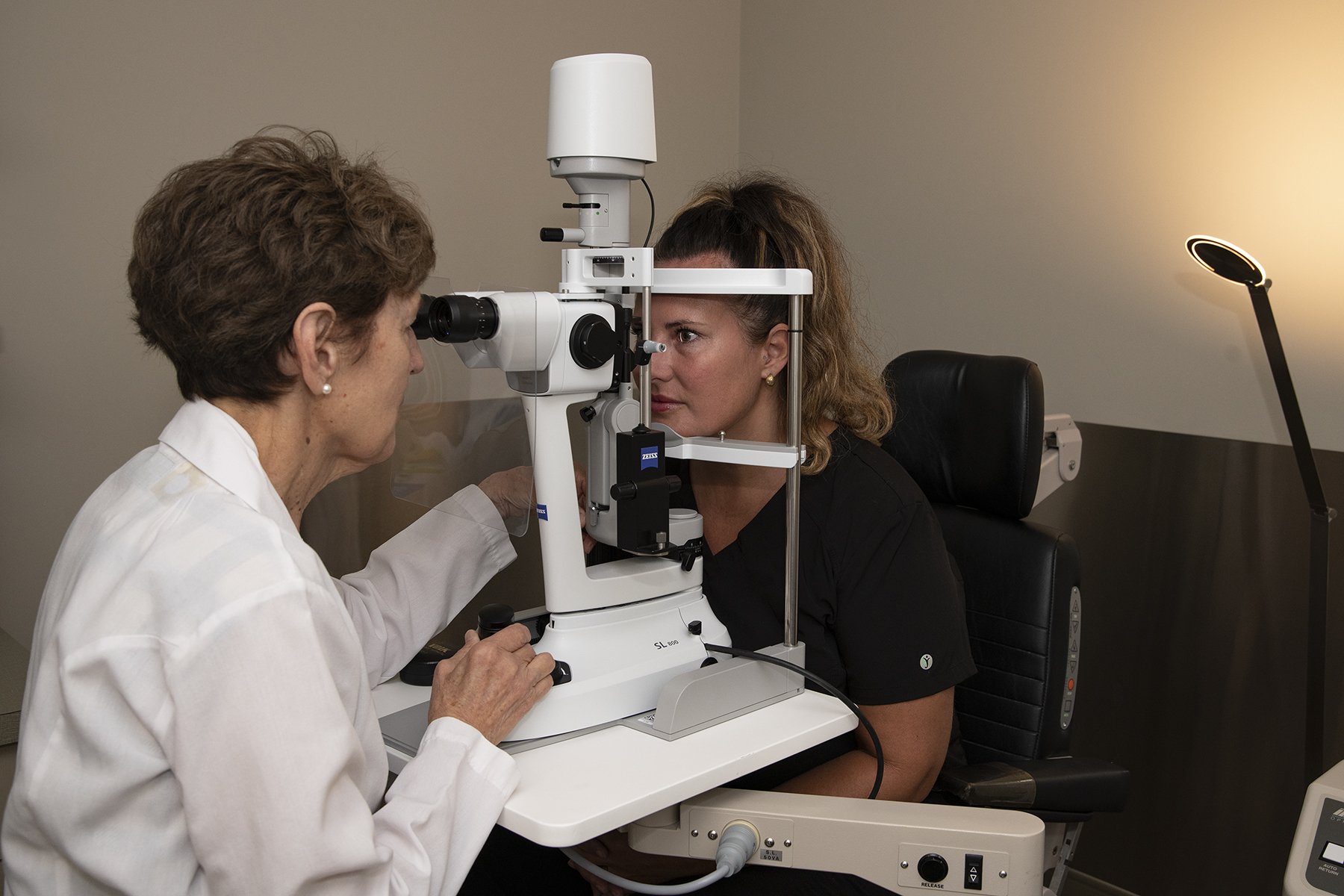
Dr. Uniat Bio
Dr. Linda Uniat, MD. F.R.C.S.(CAN)
Specialized Retina Care and Treatment
Dr. Linda Uniat has been providing specialized retina care to patients from across central and northern Alberta as well as the North West Territories. She is the longest established retina specialist in the region.
In addition to meeting patient needs at the Retina Imaging Centre, Dr. Uniat is a member of the ophthalmology department team at the adjacent Royal Alexandra Hospital in Edmonton, and is an Associate Clinical Professor in the Department of Ophthalmology at the University of Alberta.
A native Albertan who is fluent in English and conversational in Ukrainian, Dr. Uniat graduated as an MD from the University of Alberta before spending time studying and practicing in New Zealand. After her return to the U of A for her ophthalmology training, she then did a Fellowship in Ocular Pathology followed by her Retinal Fellowship training at Washington University in St. Louis, Missouri. She returned to Edmonton to establish her practice and was added to the teaching faculty at the U of A.
Dr. Uniat has been involved in teaching ocular trauma through the ATLS program at the U of A, medical and surgical retina, as well as ocular pathology to medical students and residents in the ophthalmology program.
In 2010 she was awarded the May Cohen Mentorship award by the Canadian Medical Association.
She served as president of the Retina Society of Alberta between 2019 - 2020.
Maintaining her reputation for providing state of the art care, in 2003, Dr. Uniat became the first ophthalmologist in Alberta to acquire an optical coherence tomography unit, a scanning tool which provides instantaneous analysis and diagnosis of a range of retinal macular diseases. Other patient-care equipment used in the Retina Imaging Centre includes an argon laser unit for treating retinal tears and diabetic retinopathy — a rapidly increasing problem in North America ; an ultrasound unit, which provides computer images of the retina when view is obscured because of cloudy cataracts and vitreous hemorrhaging; and a fundus camera providing photos of the entire retina.
These various technologies help Dr. Uniat and her colleagues determine specific diagnoses and appropriate treatment options , as well as communicating and educating patients more effectively , to help them understand their conditions and the steps necessary for optimum care and treatment.
